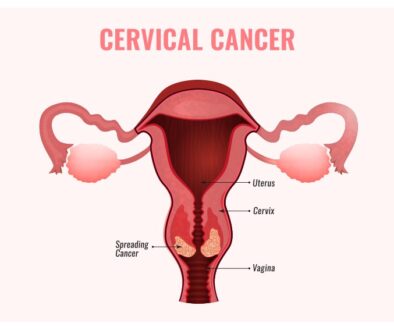Ovarian Cancer Risk – When to See a Gynaec Oncologist
Ovarian cancer risk factors: According to a study published in the International Journal of Cancer Research, the risk of ovarian cancer was strongly related to intake of high fat, menarche at an early age, and post-menopausal status. Furthermore, the risk was reduced for menarche at a later age and 80% decreased by one birth event and six times decreased for menarche at a later age. This was a case-control study in the Tiruchirappalli district of Tamilnadu, India.
What are the other main clinical risk factors for ovarian cancer?
The major risk factor is a family history of ovarian cancer. This prominent risk factor is helpful in evaluating a woman’s overall lifetime risk of ovarian cancer. According to a study done by Rinmann et al., in 2004 – another major risk factor is hormonal therapy and reproductive behaviors of women.
Older women are at risk (advancing age is another risk factor). In a majority of the women who have been diagnosed with ovarian cancer, the average age was around 60 years.
Ovarian cancer Risk Factors
- A family history of ovarian cancer or carrying a type of inherited gene
- (BRCA1 and BRAC2 gene)
- Getting Older
- Smoking
- Hormone Replacement Therapy (HRT)
- Age, most cases develop after menopause
- Late pregnancy and having a child after 35 years of age
- Endometriosis
- Being obese or overweight
- Having Lynch syndrome
- Never being pregnant
- Certain fertility and hormone medications
An early diagnosis can improve an individual’s outlook. But, in a majority of the cases, ovarian cancer is diagnosed at an advanced stage. In the initial stages, symptoms are not noticeable. There are several challenges and difficulties in the diagnosis of ovarian cancer. For cancer that has not spread outside the ovary, the 5-year survival rate is around 92%.
What factors lower the risk of ovarian cancer?
Factors that may lower the overall risk of developing ovarian cancer include:
- being pregnant and breast-feeding
- Birth control pills use for at least 4 to 5 years
- Previous surgeries such as ovaries removal surgery, hysterectomy, and tubal ligation.
What are the early warning signs of ovarian cancer?
Symptoms mostly associated with ovarian cancer tend to develop in the later stages of the condition, as growth put pressure on the bladder, uterus, and rectum.
The symptoms associated with ovarian cancer that develop at any stage of the disease include:
- Pressure in the lower back or pelvis
- Bloating
- Nausea
- Pelvic or abdominal pain or cramping
- Unexplained exhaustion
- Back pain
- Constipation
- Feeling full quickly after starting to eat or lack of appetite
- An urge to urinate more frequently or urgently than normal
- Indigestion or upset stomach
- Increase abdominal girth or abdominal swelling
- Painful sex
- Menstrual changes
- Weight loss
Ovarian cancer symptoms often mimic the symptoms associated with other common health conditions – such as indigestion, bloating, abdominal pain, constipation, and heartburn. If the symptoms are due to less serious health conditions, they respond to basic treatment and go away with medication and other lifestyle changes – and sometimes, on their own.
Never ignore these symptoms if they persist and develop suddenly, become worse, and progressively cause discomfort irrespective of basic treatment. It is always better to see a specialist lady doctor as the symptoms might be due to ovarian cancer.
When should you see a female gynecologic oncologist?
You must see a female oncologist who specializes in the diagnosis and treatment of ovarian cancer if you are at risk due to a family history of ovarian cancer and other ovarian cancer risk factors (as discussed above). If you have a family history of gastrointestinal or reproductive cancers, you should talk to your gynaec oncologist to enquire about undergoing genetic counseling and genetic testing for the detection of specific gene mutations.




